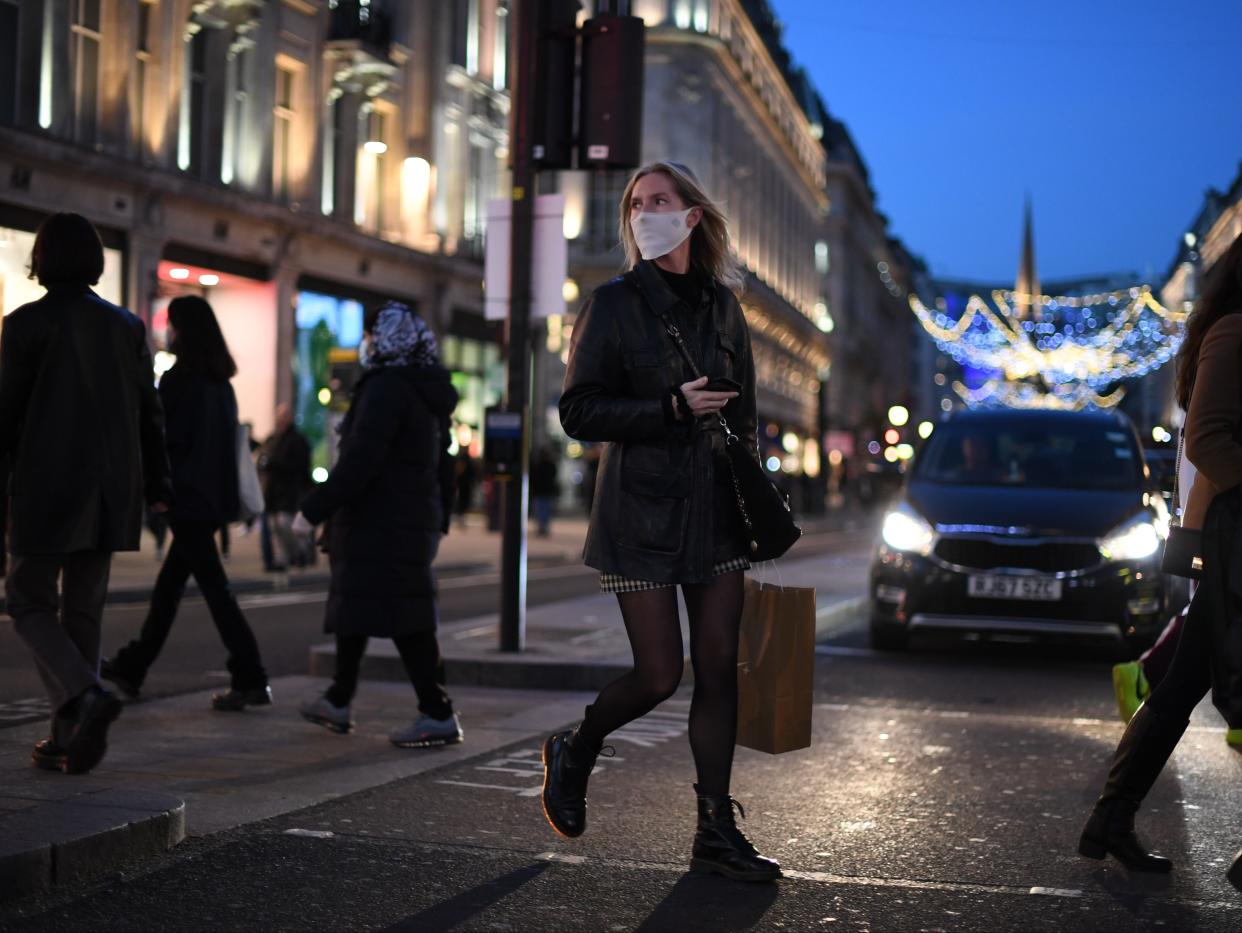UK variant does not increase Covid severity, new studies suggest

The Kent variant spread throughout the UK in the run-up to Christmas
(AFP via Getty Images)The coronavirus variant first detected in Kent is more transmissible but does not increase disease severity in infected patients, according to new research.
Prime minister Boris Johnson first told the nation in January that the variant, called B117, may be “associated with a higher degree of mortality”. A number of studies later echoed this, suggesting B117 was more deadly.
However, two studies published have found no evidence that people with B117 have worse symptoms or a heightened risk of developing long Covid then those with a different variant.
Both suggest the viral load and the reproduction (R) number were higher for B117, adding to growing evidence that it is more transmissible than the original virus first detected in Wuhan, China.
The two observational studies were conducted between September and December when the Kent variant first emerged and started to spread across parts of England.
The authors have acknowledged that their findings differ from other studies exploring the severity of the variant, and called for more research.
One of the studies looked at coronavirus patients admitted to University College London Hospital and North Middlesex University Hospital between 9 November and 20 December.
The authors compared illness severity in people with and without B117 and calculated viral load.
Among 341 patients who had their test swabs sequenced, 58 per cent (198 out of 341) had B117 and 42 per cent (143 out of 341) had a non-B117 infection.
The study, published inThe Lancet Infectious Diseases journal, found no evidence of an association between the variant and increased disease severity, with 36 per cent of B117 patients becoming severely ill or dying, compared with 38 per cent of those with a different variant.
Some 16 per cent of B117 patients died within 28 days, compared with 17 per cent for those with a non-B117 infection.
Dr Eleni Nastouli, from University College London Hospitals NHS Foundation Trust, said: “One of the real strengths of our study is that it ran at the same time that B117 was emerging and spreading throughout London and the South of England.
“Analysing the variant before the peak of hospital admissions and any associated strains on the health service gave us a crucial window of time to gain vital insights into how B117 differs in severity or death in hospitalised patients from the strain of the first wave.
“Our study is the first in the UK to utilise whole-genome sequencing data generated in real time and embedded in an NHS clinical service and integrated granular clinical data.”
A second study, published inThe Lancet Public Health, analysed self-reported data from 36,920 UK users of the Covid Symptom Study app who tested positive for the disease between 28 September and 27 December.
The analysis covered 13 full weeks over the period when the proportion of B117 grew most notably in London, the South East and East of England.
Users were included in a week if they had reported a positive test during the 14 days before or after that week.
For each week in every region in the analysis (Scotland, Wales and the seven NHS England regions), authors calculated the proportion of users reporting any of 14 Covid-19 symptoms.
Dr Claire Steves, reader and honorary consultant physician at King’s College London, who co-led the study, said: “We could only do this by aggregating two large sources of data: the extensive genetic sequencing of viral strains performed in the UK, and symptom and testing logs from millions of users on the Covid Symptom Study App.
“Thanks to them, we confirmed the increased transmissibility but also showed that B117 clearly responded to lockdown measures and doesn’t appear to escape immunity gained by exposure to the original virus.
“If further new variants emerge, we will be scanning for changes in symptom reporting and reinfection rates, and sharing this information with health policymakers.”
The analysis revealed no statistically significant associations between the proportion of B117 within regions and the type of symptoms people experienced.
Dr Nicholas Davies, an evolutionary biologist and epidemiologist at the London School of Hygiene and Tropical Medicine, said much of the available evidence suggests that B1117 “is more likely to land you in the hospital than pre-existing variants of Sars-CoV-2, but once in the hospital there are no substantial differences in outcomes”.
Read More
UK Covid-19 vaccinations: Latest figures
Rare European vultures being killed by livestock drug
Help butterflies and moths to boost your mental health, public told

